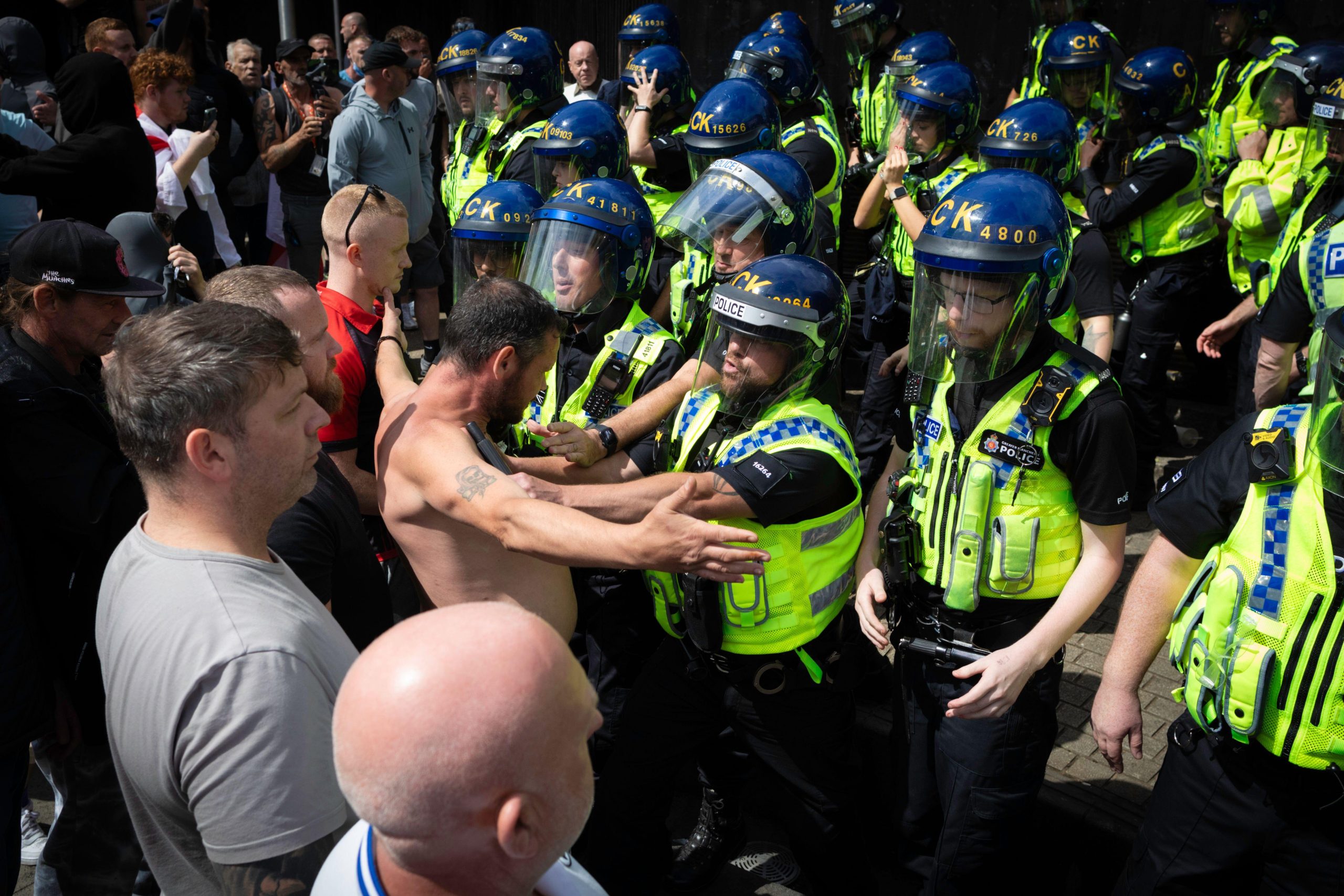Far too often in Britain and elsewhere governments claim the price of countering extremist threats is limiting free speech. The latest example in the UK is proscribing Palestine Action as a terrorist organisation, which has led to hundreds of people arrested for peacefully holding up banners supporting the organisation. On the other side of the aisle, people are exercising their right to protest against the use of hotels to house asylum seekers, actions justified by the shadow home secretary Chris Philp, who said they had “every right to protest”. But there is a fear by some that that “cordon sanitaire” between peaceful protesters and extreme far right neo-Nazis is being breached, with Byline Times identifying known supporters of extremist groups taking part.
That balance between free speech, protest and extremism is a delicate one and the instinct of some politicians to demonstrate grip, or respond to what they see as the consensus, can be to ban things and even label them terrorist or extremist activities. We at Index were warning about this 10 years ago.
Round the world, we know that terrorism legislation is often used to stop journalists reporting and opposition parties standing for election. Anti-terrorism laws can be a catch-all which criminalises opponents and scares off criticism. In some countries clamping down on so-called “terrorism” serves to close down interference from abroad: “Don’t criticise us with your liberal ideas, we are keeping you safe by locking up people who could blow you up.”
Mostly governments really don’t want to discuss these messy nuances. So it might be somewhat surprising that the Home Office, on its website, has decided to publish a series of essays commissioned by the outgoing Commissioner for Counter-terrorism, Robin Simcox entitled: Countering Terrorism: Defending free speech. In his introduction Simcox explains why he commissioned these thought pieces: “One, freedom of speech matters greatly to me. Two, I think it is under sustained attack. Three, counter-extremism work too often forms part of the offensive.”
One of his points, and an argument made in many of the essays, is that freedom of expression is uncomfortable. He writes: “We defend it because freedom of expression is the route by which we discover the truth; because testing conflicting opinion can be challenging but ultimately makes our discourse healthier; and because we learn to accept and indeed cherish those with differing viewpoints. The alternative – a coerced, ‘acceptable’ consensus of the day – offers a bleak vision of the future.”
The idea of “tolerance”, one essay argues, leads to a flattening of robust argument where we censor ideas and conversations in order not to offend others. Meanwhile Liam Duffy’s essay, titled Don’t Do Anything I Say in This Song: Countering Extremism with Candour, Not Censorship, is an interesting insight into how government works. He argues that there is a “complacency and cavalier attitude to freedom of expression” among those who deal with counter extremism with “concerns over free speech too often dismissed as being advanced with cynical motivations”.
Our very own editor-at-large Martin Bright’s essay, which you can read here, looks at the challenges journalists face when reporting on extremism and community relations.
Hopefully government ministers will read these essays before the end of the summer break and reflect on whether they have got the balance right in the UK.





